COP21: Paris climate deal 'our best chance to save the planet', says Obama
Pledge would see 'acceptable' level of global warning cut to less than 2C, with 1.5C the aim
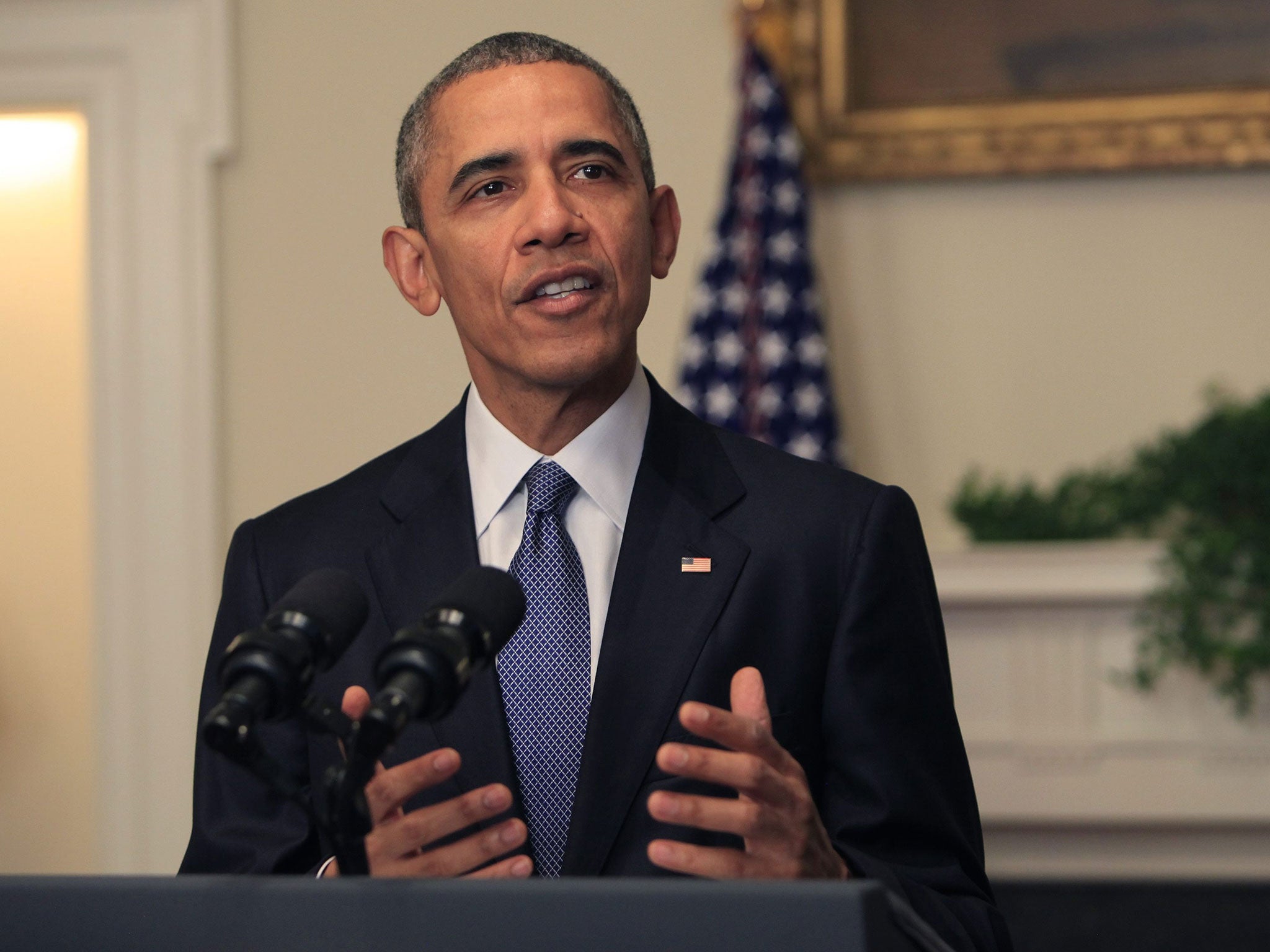
President Obama has hailed the new Paris climate deal as "the best chance we have to save the one planet we have".
Speaking hours after the historic agreement was reached, he said it could be a "turning point" for the world - and a defining moment for his administration.
"We've shown that the world has both the will and the ability to take on this challenge.
The climate agreement was reached by nearly 200 nations, and is a partially legally-binding commitment to keep global warming "well below" the threshold of 2C.
President Francois Hollande said: "In Paris, there have been many revolutions over the centuries. Today it is the most beautiful and the most peaceful revolution that has just been accomplished - a revolution for climate change."
Obama said the assembled leaders in Paris "met the moment", and that people can be more confident "the planet will be in better shape for the next generation."
"The American people can be proud," he added. "Because this historic agreement is a tribute to American leadership. Over the past seven years, we've transformed the United States into the global leader in fighting climate change."
On Saturday night, nations agreed a “transformational” action plan involving the toughest climate targets ever set and hundreds of billions of dollars put aside to tackle the problem.
Two decades of wrangling came to an end as the most far-reaching environmental deal in history promised to cut the officially ‘acceptable’ level global warming from 2C to 1.5C – a move with the potential to dramatically reduce the damage inflicted by climate change.
A host of other measures were also agreed in an attempt to hit the extremely ambitious new gobal warming target, in what has already become known as the Paris Agreement.
These included a promise by rich countries to channel at least $100 billion a year into developing nations from 2020 to help them become greener and to protect them from climate change impacts such as floods, droughts and storms.
Money will also be made available to help vulnerable countries deal with a whole range of problems caused by global warming, from increased storm and flood damage to mass-migration as drought and rising sea levels make huge areas uninhabitable.
After the talks went into extended overtime, the French Foreign Minister Laurent Fabius took just minutes to declare the pact adopted. Delegates from almost 200 nations gave standing ovations and whistles.
Calling it "ambitious and balanced", Fabius said the accord would mark a "historic turning point" in efforts to avert the potentially disastrous consequences of an overheated planet.
Prime Minster David Cameron hailed the agreement, saying that the deal "means our grandchildren will see we did our future".
IMF chief Christine Lagarde called it "a critical step forward" for addressing global climate change and said her key message is to "price carbon right."
“We have come to a defining moment on a long journey that dates back decades. This is a historic document which promises to set the world on a new path, to a low-emissions, climate-resilient future,” United Nations Secretary General Ban Ki-moon said yesterday as he unveiled the final draft of the agreement in Paris.
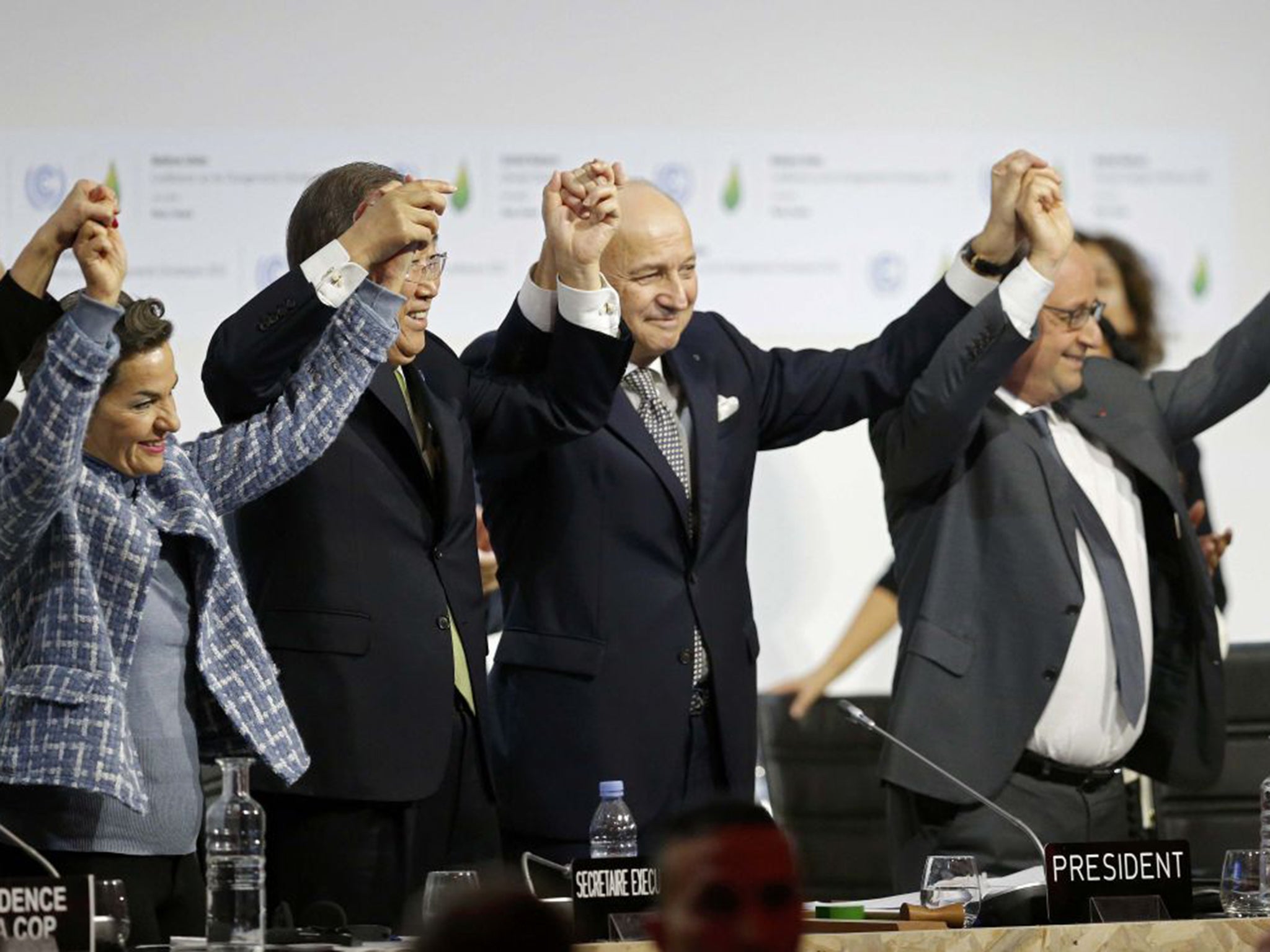
“The Paris agreement is a turning point in the world’s fight against climate change, which threatens prosperity and well-being among both rich and poor countries,” added Lord Stern, of the London School of Economics’ Grantham Institute.
The agreement also includes a commitment for countries to step up their pledges to cut carbon emissions every five years and for the world to begin bringing down its collective emissions “as soon as possible”.
Further emission cuts are regarded as essential if the world is to have any chance of hitting its 1.5C goal since the pledges made by more than 170 countries in the run-up to the Paris summit would only limit global warming to between 2.7C and 3C.
The new agreement also includes a crucial long-term goal for the world to effectively end carbon emissions by the second half of the century.
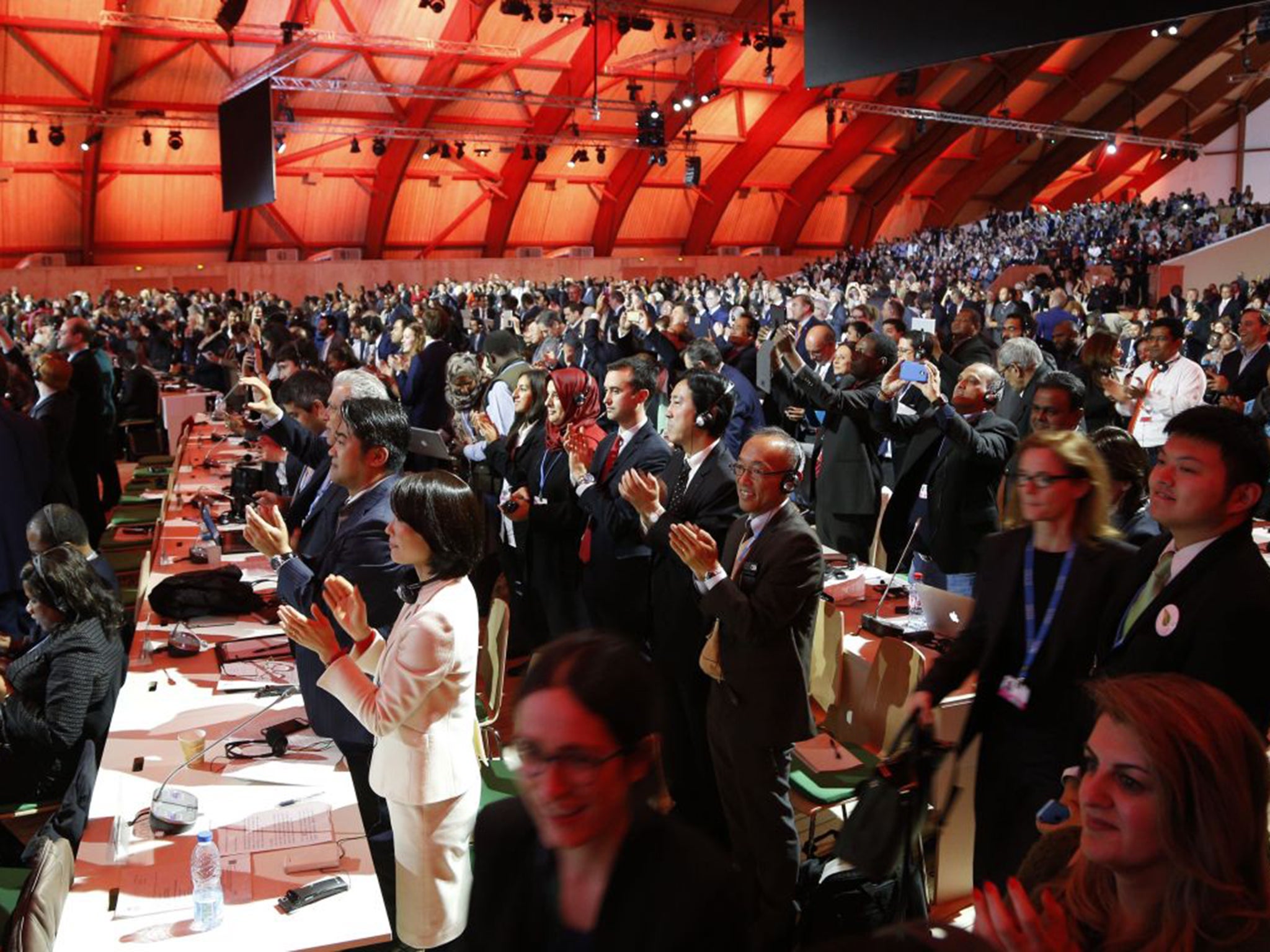
The text says the world is aiming for “net zero emissions” at some point between 2050 and 2100, meaning that any CO2 emissions would either need to be captured at source and piped underground or offset by an increase in carbon sinks such as trees.
Experts hailed the goal to clamp down so severely on emissions as “transformational” saying it would “send a clear signal to the market” that the days of fossil fuels were ending and renewable power was taking over. This would stimulate much-needed investment in wind, solar and other low-carbon energy sources and deter financing for coal, gas and oil.
However, they cautioned that while the deal ends one chapter of the global warming battle – an agreement on how to tackle it – an even more difficult era has now begun in which these highly-ambitious targets need be achieved.
“Time will reveal the true nature of the Paris Agreement. From epic turning point, to naïve expression of hope, it is the real-world actions that follow that will decide,” said Professor Chris Rapley, a leading climate scientist from University College London.
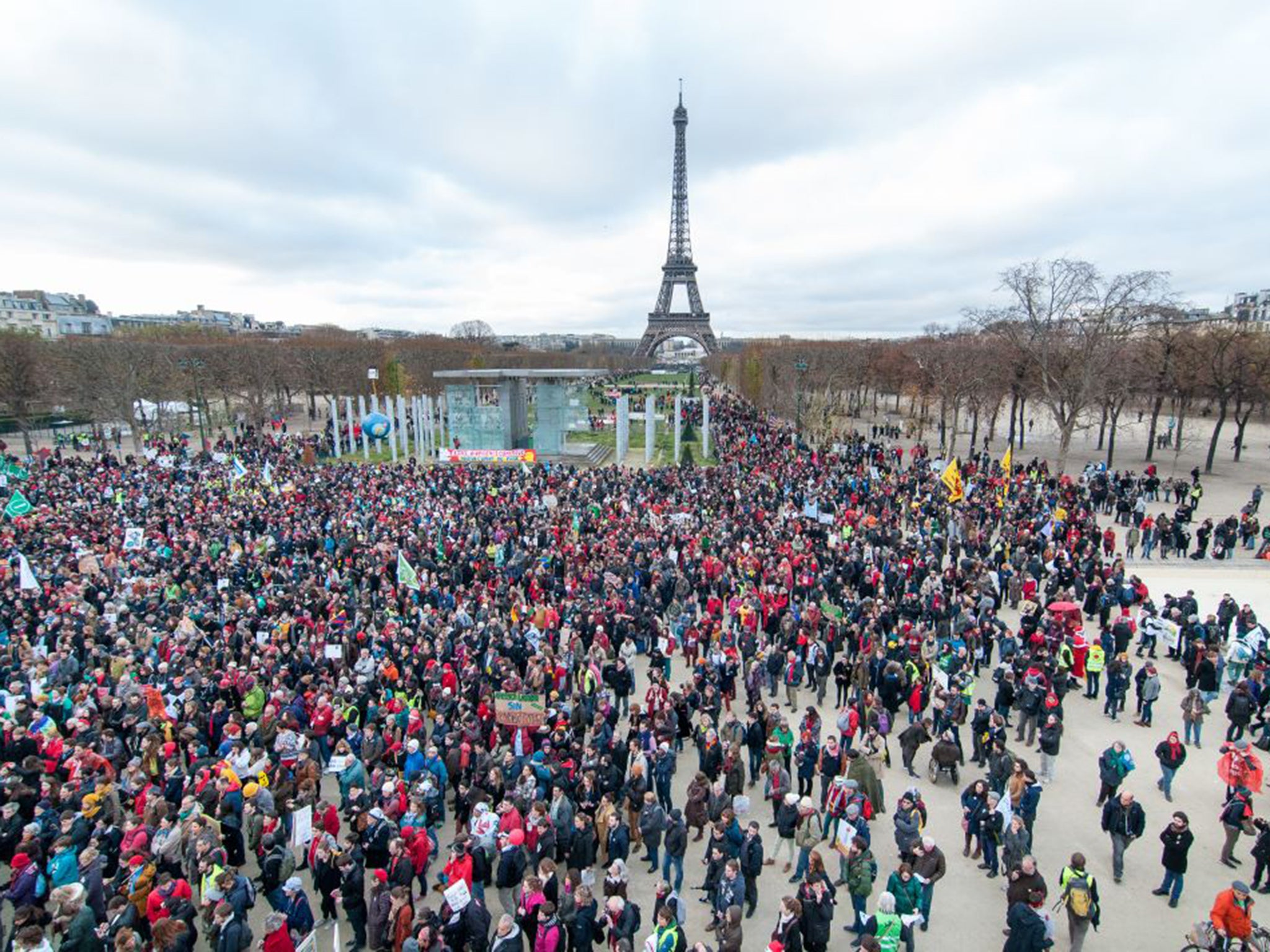
The agreement sees developed countries renew their traditional commitment to take primary responsibility for cutting emissions and for helping poorer nations adapt to global warming.
But in a new move, those countries who are still classed as "developing" but have become relatively wealthy, are now requested to do what they can to help out poorer nations as well. The countries likely to be affected include India, China, Singapore and South Korea.
Despite being widely welcomed as a historic deal campaigners were disappointed it did not go even further. They argued that parts of the agreement were voluntary rather than binding. Furthermore, the poorer countries – who had little to do with global warming but are among the most affected by it – should be getting more help, they said.
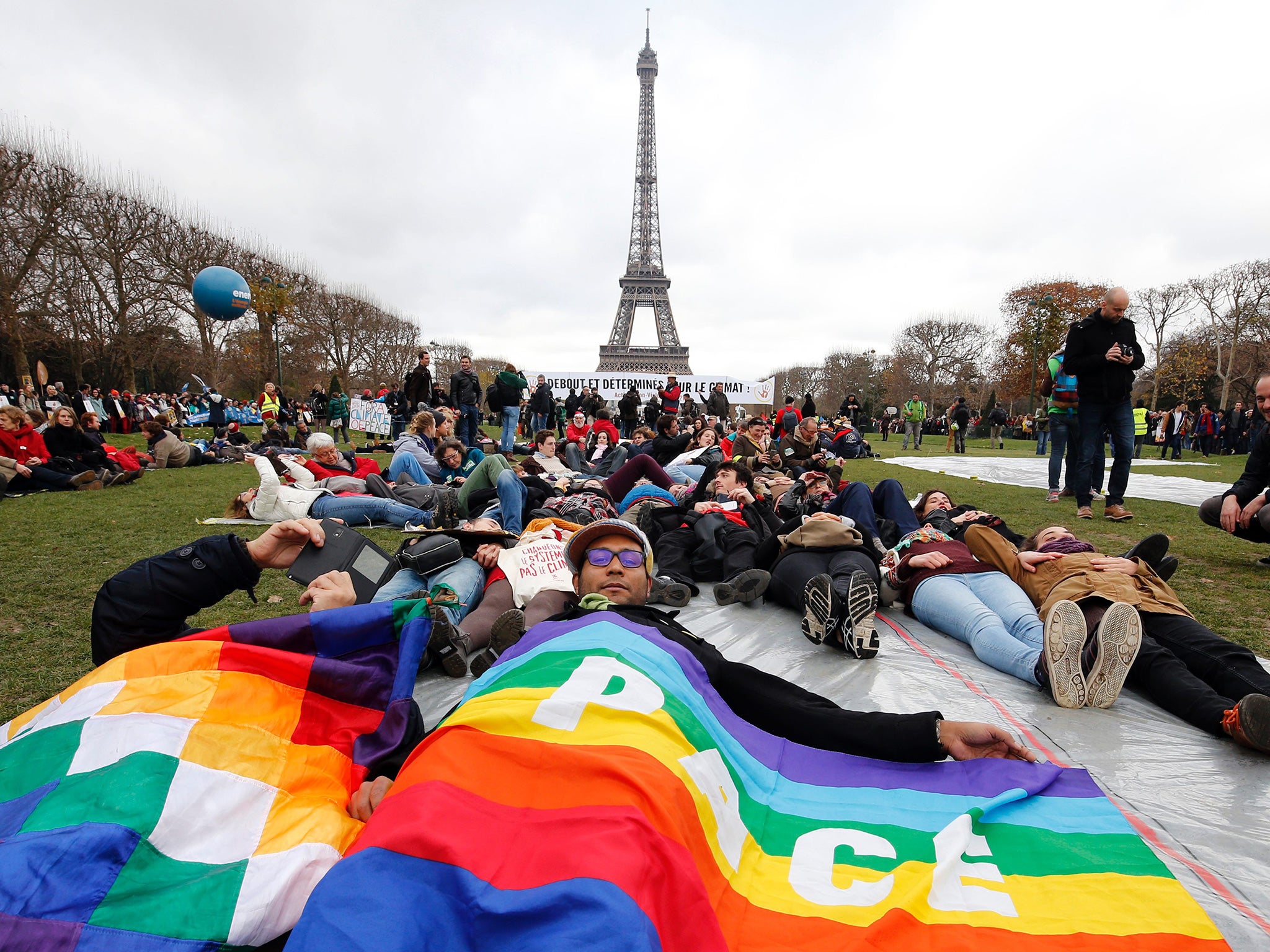
“There’s not enough in this deal for the nations and people on the frontlines of climate change. The nations which caused this problem have promised too little help to the people who are already losing their lives and livelihoods,” said Greenpeace International executive director Kumi Naidoo.
Friends of the Earth chief executive Craig Bennett was even more scathing.
“This draft climate deal falls far short of the soaring rhetoric from world leaders less than two weeks ago. While it does at least put fossil fuels on the wrong side of history, it doesn’t contain the solid commitments science and natural justice require to cut emissions and protect people from increasing floods, droughts and super-storms,” he said.
Although the new 1.5C target was widely welcomed as an aspiration, scientists questioned how feasible it would be to achieve.
Last month, new research found that the world has now warmed by 1C since pre-industrial times, meaning time is rapidly running out.
But world leaders are determined to limit global warming to 1.5C if they possibly can after research showed that the previous 2C target would spell disaster for low-lying, hot and Arctic regions – which are the most vulnerable to climate change.
Join our commenting forum
Join thought-provoking conversations, follow other Independent readers and see their replies
Comments
Bookmark popover
Removed from bookmarks